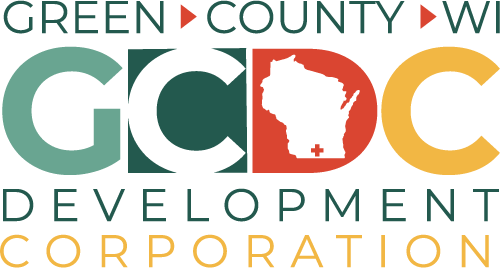Why is Placemaking a Part of Economic Development?
By Olivia Otte, Executive Director, Green County Development Corporation
One reason I love economic development is because of the diverse projects that I get to work on on a day-to-day basis. On any given day, I can go from focusing on business recruitment, to grant writing, to talking with elected officials. Even though I enjoy working on all these different aspects of economic development, one of my favorite elements is placemaking.
Placemaking is something that most people usually don’t associate with economic development, but it plays a crucial role. While definitions can vary, most people define placemaking as the practice of creating or enhancing a community’s assets to improve its overall attractiveness and livability. This can include larger-scale efforts such as alternative transportation infrastructure, or smaller-scale projects like pop-up shop programs and downtown beautification. With the workforce shortage, placemaking has only become more important. Companies seek talented workers, these workers look for quality places, and quality places attract new residents, jobs, and investments. Placemaking is no longer something that can be pushed to the side, it is now a major factor in a community’s ability to grow. Here are several reasons why placemaking is important in economic development:
- Attracting businesses and investment: Well-designed and vibrant public spaces help to create a more appealing atmosphere for businesses and investors. These spaces can help attract skilled workers, retain talent, and encourage innovation and entrepreneurship.
- Improving property values: Attractive public spaces have a positive impact on property values. Placemaking efforts that enhance the overall character and appeal of a neighborhood or city/village can lead to increased demand for real estate, leading to higher property values and potential economic growth.
- Encouraging social interaction and community engagement: Placemaking creates opportunities for social interaction, fostering a sense of community and strengthening social ties. These social connections can lead to stronger local networks, increased civic engagement, and support for local businesses.
- Revitalizing underutilized areas: Placemaking can breathe new life into neglected or underutilized areas. By transforming vacant lots, abandoned buildings, or rundown areas into attractive and functional spaces, placemaking initiatives can bring economic benefits to these areas by attracting new businesses and residents.
In summary, placemaking is essential for economic development as it helps attract businesses and investment, improves property values, encourages community engagement, and revitalizes underutilized areas. By investing in the creation of appealing and functional public spaces, our communities can drive economic growth and improve the overall quality of life.
